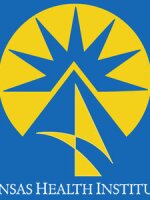Kansas lawmakers are on spring break until the end of the month. They left the statehouse last week without passing a new budget. They’re waiting to see the latest tax revenue numbers before finalizing a spending bill for the next two years. Lawmakers did take action on a series of other bills though, including legislation related to state pensions and welfare. KPR's J. Schafer spoke to Statehouse reporter Stephen Koranda and Jim McLean, of the KHI News Service, to learn more for this week's installment of "In Session," news from the Kansas Statehouse.
That’s Statehouse Bureau Chief Stephen Koranda, speaking with KPR’s J. Schafer and Jim McLean, of the KHI News Service. You'll find this edition of "In Session" on the KPR website: KPR.KU.EDU


